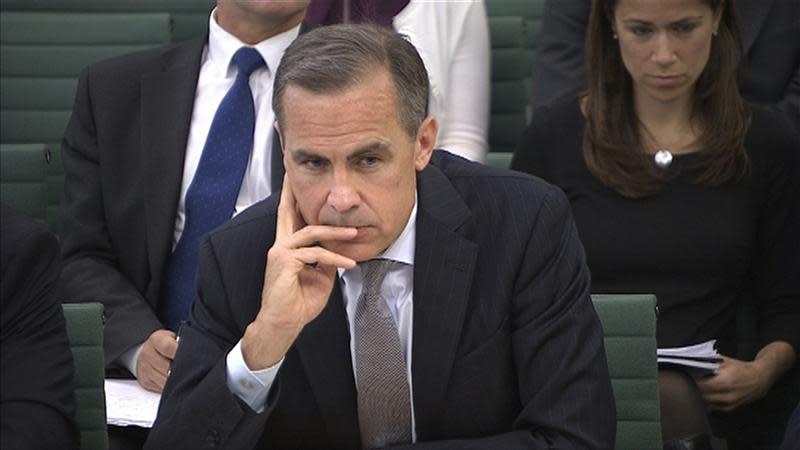Bank of England's Carney says stimulus working, wary of new "false dawn"

By David Milliken
LONDON (Reuters) - Bank of England Governor Mark Carney defended his policy of forward guidance to lawmakers on Thursday and said signs of recovery in Britain's economy could prove to be another "false dawn".
Strong economic data in recent weeks has caused financial markets to push up long-term borrowing costs and bring forward bets on when the BoE will increase interest rates, raising doubts about Carney's new policy, which aims to stop expectations of higher rates choking off recovery.
British lawmakers challenged Carney on this at a session to explain his guidance plan. The Canadian said it was succeeding in lowering short-term borrowing costs relative to longer ones, easing credit conditions for households and small firms.
"The economy is picking up and the stimulus is working," he said, adding that guidance made the BoE's pre-existing policy stance more effective, rather than loosening or tightening it.
But Carney said it was early days for the recovery and the bank stood by its forecast that it would take at least three years for unemployment to fall to 7 percent - the threshold for it to start to consider interest rate rises. Markets by contrast think a rate rise could come in little more than a year.
"Our job is to make sure that (recovery is) not another false dawn that we saw earlier, a few years earlier, and to make sure that as soon as possible this economy reaches a form of sustained velocity," Carney said.
Britain's economy seemed to be on the mend in 2010 and early 2011 only for growth to peter out, and Carney said there might even be a case for more stimulus if that happened again.
"If recovery were to falter, if additional stimulus were to be required, we would consider whether to provide additional stimulus."
Earlier this week, British finance minister George Osborne said Britain was turning a corner after struggling to recover from the financial crisis and praised the guidance policy, which he had urged the BoE to consider earlier this year.
MARKETS LITTLE MOVED
Sterling recovered earlier losses as investors saw no signs that the rise in market interest rates was enough of a concern for the BoE to resort to more stimulus. British government bond prices were little changed on the day while short sterling futures slightly pared back expectations of rate rises. (GBP/)
"The testimonies of Mark Carney and his MPC colleagues to the Treasury Select Committee are unlikely to have been a game changer as far as the markets are concerned," said IHS Global Insight economist Howard Archer.
BoE policymaker David Miles, who supported more asset purchases earlier this year, told the committee that the recent rise in British government bond yields might well be transitory. Paul Fisher, another dovish official, said markets may have underestimated the degree of slack in the labor market.
However a third policymaker, Ian McCafferty, had more sympathy with the recent rise in bond yields.
Carney shrugged off skepticism in markets about the Bank's plan, saying consumers and businessmen had got the message that the BoE's rates would remain low for a long time.
"My experience in talking to businesses, our experience in terms of surveys of household expectations have been that the message has been understood," he said.
A survey released by the BoE last week showed the number of people expecting interest rates to rise in the next year has fallen to its lowest since November 2008.
Some of the lawmakers on the committee told Carney the nuances of the plan were not easy to understand for the public.
(Additional reporting by William Schomberg, Olesya Dmitracova and Christina Fincher; Editing by Ruth Pitchford)
